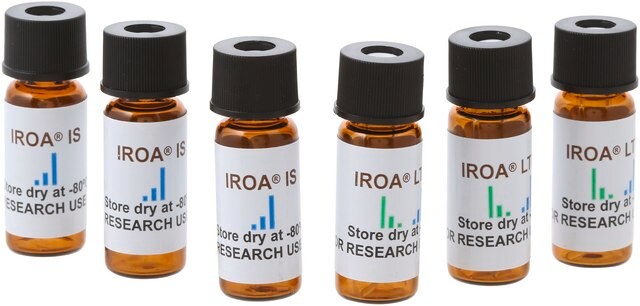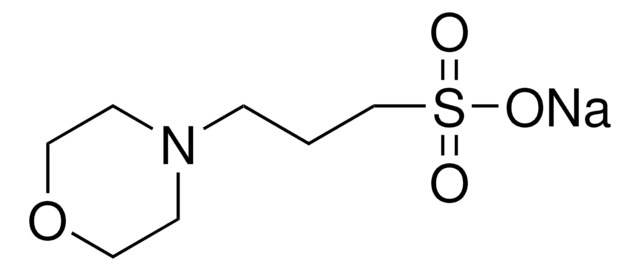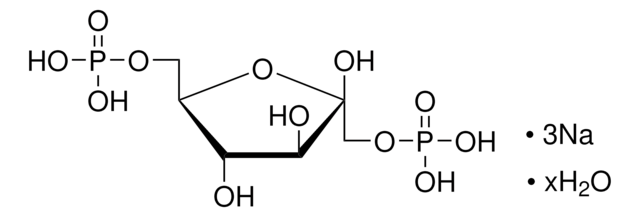EPI006
Histone Deacetylase 8 (HDAC8) Activity Assay Kit
100 assays in 96 well plates
Faça loginpara ver os preços organizacionais e de contrato
About This Item
Produtos recomendados
uso
100 assays in 96 well plates
nº de adesão NCBI
Condições de expedição
wet ice
temperatura de armazenamento
−20°C
Informações sobre genes
human ... HDAC8(55869)
mouse ... HDAC8(70315)
Descrição geral
HDAC8 (histone deacetylase 8) is a class I enzyme, that has 377 residues and it lies between class I and class II HDACs. This gene is located on X chromosome. It consists of a single α/β domain, in which eight parallel stranded β sheets are sandwiched between 13 α helices.
Histone deacetylases (HDACs) are a large family of enzymes that remove acetyl groups from histone proteins. Site specific histone acetylation and deacetylation have been shown to activate or repress eukaryotic gene transcription, respectively, and as a consequence, it plays a crucial role in mammalian development and disease. HDACs are involved in important biological activities, such as cell differentiation, proliferation, apoptosis, and senescence.
With Sigma′s HDAC8 Activity Assay Kit, HDAC8 present in a test sample will act with the supplied Developer, to deacetylate and then cleave the HDAC8 Substrate (R-H-K(Ac)-K(Ac)-AFC). This activity will release the quenched fluorescent group, AFC, which can be detected at Em/Ex = 380/500 nm. Trichostatin A is an HDAC inhibitor included in the kit to verify HDAC8 activity. The kit provides a rapid, simple, sensitive, and reliable test. It is suitable for either individual tests or high throughput assays, from nuclear extracts, purified, or immunoprecipitated HDAC8, and from native, recombinant, or genetically modified HDAC8.
With Sigma′s HDAC8 Activity Assay Kit, HDAC8 present in a test sample will act with the supplied Developer, to deacetylate and then cleave the HDAC8 Substrate (R-H-K(Ac)-K(Ac)-AFC). This activity will release the quenched fluorescent group, AFC, which can be detected at Em/Ex = 380/500 nm. Trichostatin A is an HDAC inhibitor included in the kit to verify HDAC8 activity. The kit provides a rapid, simple, sensitive, and reliable test. It is suitable for either individual tests or high throughput assays, from nuclear extracts, purified, or immunoprecipitated HDAC8, and from native, recombinant, or genetically modified HDAC8.
Ações bioquímicas/fisiológicas
HDAC8 (histone deacetylase 8), with the help of PKA (cyclic AMP-dependent protein kinase A) plays a major role in confirming the acetylation state of histones. This protein may also plays an important role in acute myeloid leukemia (AML). Suppression of HDAC8 by RNA interference stops the growth of lung, colon, and cervical cancer cell lines.
Características e benefícios
- Simple, sensitive, and reliable assay
- Utilizes fluorometric methods
- Sample type: cell and tissue lysates, plasma and serum, other biological fluids
- Species reactivity: mammalian
- Suitable for individual tests or high throughput assays and kinetic studies
- Suitable for high throughput measurement of HDAC8 activity in purified, immunoprecipitated, and recombinant or genetically modified HDAC8 samples
- Convenient 96-well microplate format
produto relacionado
Nº do produto
Descrição
Preços
Código de classe de armazenamento
10 - Combustible liquids
Classe de risco de água (WGK)
WGK 3
Ponto de fulgor (°F)
188.6 °F - closed cup
Ponto de fulgor (°C)
87 °C - closed cup
Certificados de análise (COA)
Busque Certificados de análise (COA) digitando o Número do Lote do produto. Os números de lote e remessa podem ser encontrados no rótulo de um produto após a palavra “Lot” ou “Batch”.
Já possui este produto?
Encontre a documentação dos produtos que você adquiriu recentemente na biblioteca de documentos.
Crystal structure of a eukaryotic zinc-dependent histone deacetylase, human HDAC8, complexed with a hydroxamic acid inhibitor.
Vannini A, et al.
Proceedings of the National Academy of Sciences of the USA, 101(42), 15064-15069 (2004)
Structural snapshots of human HDAC8 provide insights into the class I histone deacetylases.
Somoza JR, et al.
Structure, 12(7), 1325-1334 (2004)
Ji Heon Noh et al.
Cancer research, 74(6), 1728-1738 (2014-01-23)
Aberrant regulation of histone deacetylase 2 (HDAC2) contributes to malignant progression in various cancers, but the underlying mechanism leading to the activation of oncogenic HDAC2 remains unknown. In this study, we show that HDAC2 expression is upregulated in a large
Astrid M Kral et al.
Biochemistry, 53(4), 725-734 (2014-01-24)
Histone deacetylases (HDACs) play diverse roles in many diseases including cancer, sarcopenia, and Alzheimer's. Different isoforms of HDACs appear to play disparate roles in the cell and are associated with specific diseases; as such, a substantial effort has been made
Johannes Gräff et al.
Cell, 156(1-2), 261-276 (2014-01-21)
Traumatic events generate some of the most enduring forms of memories. Despite the elevated lifetime prevalence of anxiety disorders, effective strategies to attenuate long-term traumatic memories are scarce. The most efficacious treatments to diminish recent (i.e., day-old) traumata capitalize on memory updating
Nossa equipe de cientistas tem experiência em todas as áreas de pesquisa, incluindo Life Sciences, ciência de materiais, síntese química, cromatografia, química analítica e muitas outras.
Entre em contato com a assistência técnica







